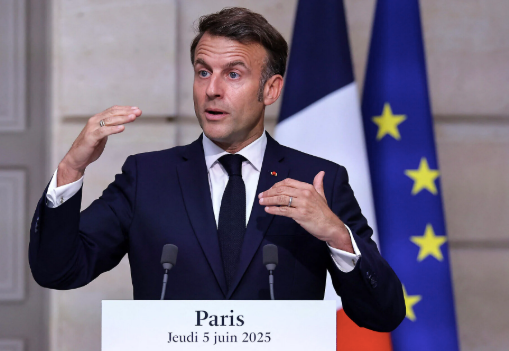On June 6, 2025, Emmanuel Macron, the President of France, grabbed headlines for publicly labeling Israel’s continuation of the blockade of humanitarian aid into Gaza a “disgrace.” The forceful words came amidst growing international criticism of the humanitarian crisis in the Gaza Strip in the aftermath of months of Israeli military campaigns and embargos. Macron’s statement represents a serious escalation of rhetoric by a major Western ally, reflecting mounting frustration with the government of Israel’s response to the humanitarian crisis.
The Context of Macron’s Statement
Since October 2023, Israel has conducted a prolonged military operation in Gaza following the deadly Hamas attacks on Israeli ground. As justification for the operation, Israel has invoked national security needs and the elimination of Hamas’ infrastructure. The operation, however, has claimed the lives of tens of thousands of Palestinians, with many being civilians, and has resulted in the virtual breakdown of Gaza’s health, water, and food infrastructures. Israel’s closure of aid, especially across the Rafah and Kerem Shalom border crossings, has added to the crisis. In spite of repeated appeals by the United Nations and humanitarian organizations, the delivery of supplies has been irregular and highly blocked.
It is against this background that Macron made the decision to openly condemn the blockade. Addressing a joint press conference in Paris, the French President said: “Blocking humanitarian aid is a disgrace. There are rules of war, there are basic human rights. Gaza’s civilian population is being collectively punished. This must stop.”
Macron’s comment is being read on several levels. On the one hand, it is an indication of an intensifying moral anxiety at the humanitarian crisis in Gaza. France has long had a centrism in the Israel-Palestine conflict, supporting Israel’s right to defend itself while upholding Palestinian rights. Macron’s recent remark, however, signifies a turning point, where politics of diplomacy are giving way to humanitarian considerations.
Alternatively, the comment might be interpreted as a thought-through political gesture. Macron is under domestic pressure from a population growing hostile to what Israel does. Pro-Palestinian demonstrations have been regular in French cities, and civil society organizations have been accusing the government of complicity by remaining mute. As internal political tensions and European elections loomed, Macron might want to reaffirm France’s historic reputation as a champion of human rights and international law.
International Repercussions
Macron’s criticism may persuade other leaders in the West to change their tone as well. Up until this point, most of the member countries of NATO, including the US, UK, and Germany, have been holding back in their criticism, usually framing it as urging for a “balanced approach.” Macron spoiling this diplomatic silence may urge a change of tone, particularly among the members of the European Union, which has been finding it hard to come together on Gaza.
Israel’s first reaction was one of outrage. The Israeli Foreign Ministry called Macron’s remarks “misguided and detrimental to regional stability.” Officials justified the blockade as a matter of security to keep weapons out of Hamas’s hands. But Israel’s widening diplomatic isolation—already strained with the UN, Turkey, and certain Arab states—can be further exacerbated if other Western allies start imitating France’s criticism.
Humanitarian Reality in Gaza
What gives Macron’s words such resonance is the incontestable enormity of the suffering in Gaza. More than 80% of the population is displaced, access to clean water and food is critically low, hospitals are on life support, and international humanitarian agencies have alerted us to an impending famine, the World Health Organization reports. Here, Macron’s employing the term “disgrace” is not merely rhetorical—it is an expression of broad despair among humanitarian responders on the ground.
UN representatives and aid agencies have persistently contended that the blockade breaches international humanitarian law, specifically the Geneva Conventions, that ban collective punishment and require access to aid in armed conflict. By joining these legal interpretations, Macron is issuing a message that Western backing for Israel is not absolute.
Conclusion: A Shift in the Western Narrative?
Macron’s outspoken condemnation is a milestone in world opinion on the conflict between Israel and Gaza. It may not lead to near-term policy changes either in Tel Aviv or Washington, but it adds to an increasingly vocal world concern about Israel’s battlefield tactics and the resulting humanitarian costs. The declaration is also a sign that the Western version of events may be changing, perhaps ultimately to compel more international responsibility, sanctions calls, or fresh peace initiatives.
Finally, Macron has stated firmly: assistance to Israel cannot be paid for in terms of a diminution of human dignity and international law. Whether this is the start of a wider Western shift remains to be seen—but the message is clear and loud.
Keep Reading Questuro.com for more news.

More Stories
Navigating Post-Brexit Challenges: How UK Developments Influence Europe’s Future
Why Donald Trump’s Latest Critique of London’s Mayor Amplifies EU-UK Political Dynamics
How US-UK Political Exchanges Are Shaping London’s Global Image